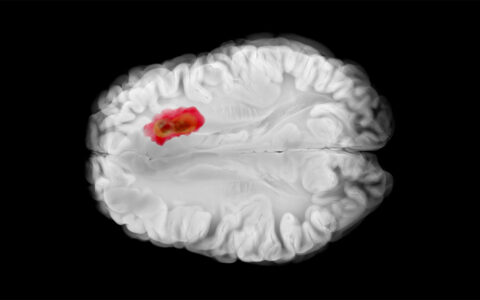Discovery of the biological function of a single protein by researchers at Vanderbilt University Medical Center could aid efforts to diagnose and treat a mitochondrial disorders that inhibit the amount of energy available to the heart, brain and other organs.
Their work that elucidated the role of SLC25A48 in mitochondrial choline transport and betaine synthesis was published in Nature Genetics. The discovery was made using a new analysis platform known as GeneMAP (Gene-Metabolite Association Prediction), developed in the laboratory of Eric R. Gamazon, Ph.D., an associate professor of medicine at VUMC.
“The integration of genetic, expression, and metabolite profiling data allows for highly accurate predictions.”
“Metabolic defects underpin many disorders, including cardiometabolic disorders, neurodegenerative conditions, and congenital diseases,” Gamazon said. “GeneMAP is an innovative computational platform capable of predicting metabolic gene function.”
GeneMAP Platform
The GeneMAP platform was developed using large-scale, plasma metabolome genome-wide association studies. According to Gamazon, such data sets provide deeper insight into metabolic gene function, as well as into the biochemical makeup of previously uncharacterized metabolites.
Using a combination genomics, epigenomics, transcriptomics, proteomics, and metabolomics – known as a multiomic approach – GeneMAP can generate accurate predictions and identify genes that are distant from variants implicated in genome-wide association studies of metabolites.
“Metabolic genes have enormous structural diversity, functional redundancy, and metabolic promiscuity,” Gamazon explained. “The integration of genetic, expression, and metabolite profiling data allows for highly accurate predictions.”
Additionally, GeneMAP was specifically designed to be high-throughput and cost-effective – two features not commonly seen in gene-function discovery platforms, he added.
Defining SLC25A48 Function
The researchers were able to validate several new gene-metabolite associations, performing in vitro biochemical studies on one of the pairs, SLC25A48-choline. Prior to these investigations, SLC25A48 lacked a defined substrate for transport.
The team identified SLC25A48 as an important mediator of choline mitochondrial import and also showed that it plays a crucial role in the de novo synthesis of betaine, a key metabolite necessary for one-carbon metabolism and an osmolyte derived from choline.
“Since releasing our work, other research groups have published pre-prints validating this gene-metabolite connection,” Gamazon said. “This bolsters our confidence in the results.”
Translational Outlook
Gamazon suggested that future studies will aim to enhance understanding of these gene-metabolite associations and further leverage the platform for risk prediction.
“We predict the platform will advance our understanding of cardiometabolic and neurological disorders.”
Multiomic discovery platforms like GeneMAP hold significant potential for use in predictive and diagnostic applications, he said. Gamazon hopes that an improved understanding of metabolic gene function will eventually aid efforts in early diagnosis and treatment of cardiometabolic disorders, neurodegenerative conditions, and congenital diseases.
“We predict the platform will advance our understanding of cardiometabolic and neurological disorders.”
Co-authors of the study from Vanderbilt include lab application developer Phillip Lin and Gokhan Unlu, Ph.D., a former graduate student.




